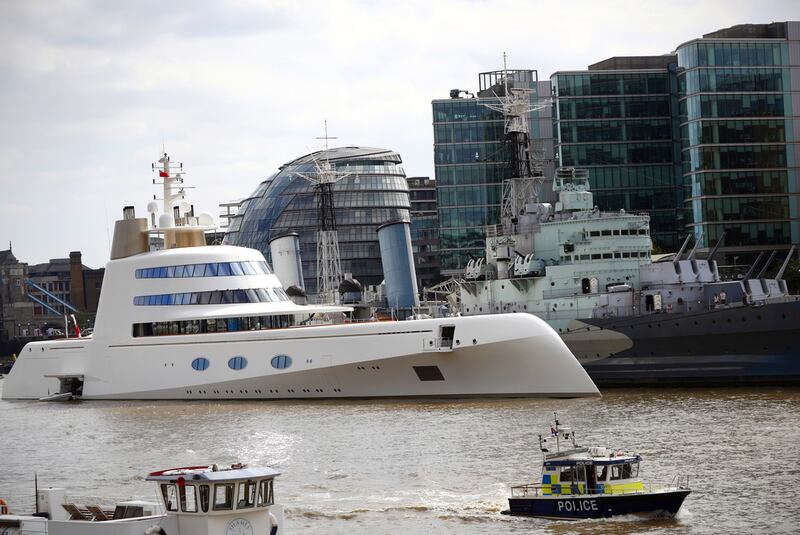The choice between owning and renting a superyacht is not one many of us will face. But if you’re one of the lucky few, you can now choose between joining the Maha Yacht Club in Asia – a mere €3.5 million (Dh13.5m) for 10 years – and buying your own luxury liner to keep forever for about €50 million.
For millennials, it’s all about the experience. According to one luxury-boat builder in the UAE, millennials would rather use a super yacht than own one. These might be ultra-high-net-worth individuals, but the principles of usage versus ownership are the same across the millennial cohort.
Young people prefer the sharing economy, where experience has more distinction than ownership. And nowhere is this more important than when you post a photo on social media.
Dubai gold retailers have been complaining that millennials are moving away from investing in the precious metal. They prefer expensive brands, which they believe show off better who they really are. Ownership is oh-so-old fashioned, best left to the history books and baby boomers.
Nowhere is this shift more evident than in car ownership. Uber has now become a verb. The UAE has its own flourishing of local apps for carpooling.
Of course there are practical triggers for the move to sharing versus ownership. In a period of global financial hardship, it may be the only choice you have.
Why make the outlay to own a product when you can access even higher quality products for the same or less? The headache of ownership disappears, and maintenance woes become a thing of the past.
Millennials have grown up in an era of eco-consciousness, and so the individual responsibility of managing consumption is weightier – and the sharing economy addresses that head on. Of course, everything must be top quality. Ownership is traded away in favour of access to high specifications. The theory is that you live a better quality of life, and feel good about saving the planet’s resources along the way.
There’s also something spiritual to be said about sharing versus consuming. It detaches a person from a thing; and the spiritual-minded have always highlighted the attachment to objects as a major block to enlightenment.
But in the race to worthily give up assets, the unforeseen consequence may be the creation of a generation that owns nothing.
We already find ourselves in the throes of a raging global discourse about the 1 per cent versus the 99 per cent, the control of the global elites on economics and politics, and ultimately about people’s life choices.
Today’s sharers, who spend their money on experiences to be had now, may face a global epidemic of disenfranchisement. Ownership will vest in fewer and fewer individuals – meaning a smaller group of resource owners and a larger number with less or nothing.
Today’s exuberance over experience and sharing may turn into a fight for resources, especially for a generation that, in old age, is frustrated at having empty pockets. What happens when your income has finished and your assets are non-existent?
It’s a difficult contradiction to wrestle. A sharing economy seems the right answer for living a better individual life, as well as maximising the use of our collective resources. Yet the aspiration of ownership – and the resulting temptation for owners to amass and exploit their assets – is a constant shadow that hangs over human history.
The question about the rise of the sharing economy is whether all of its benefits – not just its objects – will be shared by everyone, not just the super-yacht-using rich.
Shelina Janmohamed is the author of the books Generation M: Young Muslims Changing the World and Love in a Headscarf
On Twitter: @loveinheadscarf





